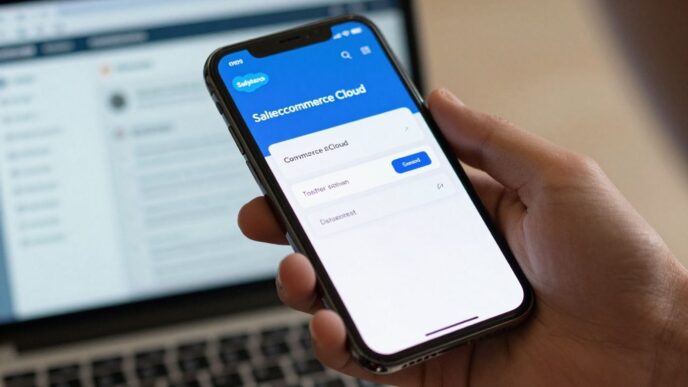It’s been almost a decade since the massive hacking of Ashley Madison, and honestly, the whole thing still feels pretty wild. This dating site for people looking to cheat really shook things up when their user data got out. It wasn’t just about the site itself being controversial; the hack brought a whole mess of personal drama and public exposure to light. We’re talking about fallout that affected real people in serious ways, and it makes you wonder about the lasting impact of something like that.
Key Takeaways
- The hacking of Ashley Madison in 2015 exposed millions of users’ private information, leading to widespread personal and societal consequences.
- The breach resulted in extortion attempts, significant psychological distress for users, and was linked to several reported suicides.
- The identity and motives of ‘The Impact Team,’ the group responsible for the hack, remain largely unknown, despite a reward being offered.
- The incident led to major legal battles, including a class-action lawsuit and an $11.2 million settlement for affected users.
- Ashley Madison, despite the scandal, has continued to operate, rebranding as Ruby Corp and changing its marketing approach.
The Genesis of the Ashley Madison Hack
Ashley Madison, a dating site for people seeking affairs, launched in 2001. Its premise was pretty straightforward, if controversial: a place for married individuals to connect with others outside their marriage. The site’s tagline, "Life is short. Have an affair," certainly didn’t shy away from its purpose. It quickly grew, attracting millions of users worldwide.
Founding and Controversial Premise
The site’s very existence sparked debate from the start. While some saw it as a pragmatic solution for those whose needs weren’t being met in their marriages, others condemned it as a facilitator of infidelity and a threat to traditional family structures. The company even tried to get its ads shown during the Super Bowl, but they were rejected for being too racy. They also made some pretty big sponsorship offers, like a $10 million deal for naming rights to the Phoenix Suns’ arena and an $11 million offer to the Cronulla Sharks rugby league team, both of which were turned down.
The Impact Team’s Demands
Things took a dramatic turn in July 2015 when a hacker group calling themselves "The Impact Team" breached Ashley Madison’s systems. They claimed the site had weak security and threatened to release the personal data of its millions of users – including names, home addresses, search histories, and credit card details. Their main demand was for Ashley Madison and its sister site, Established Men, to be shut down immediately. This demand stemmed from the fact that the site charged users a fee to delete their profiles, but the hackers alleged this deletion wasn’t actually complete, leaving user data vulnerable.
The Initial Data Leak
When Ashley Madison didn’t comply with their demands, The Impact Team began releasing the stolen data in stages. The first major leak occurred in August 2015, and it was validated by security experts. Subsequent leaks followed, including a massive dump of emails allegedly belonging to the company’s CEO. This data release had immediate and severe consequences for many users, leading to blackmail attempts and widespread public exposure. The sheer volume of data, including sensitive personal information, made it a significant event in the history of data breaches, highlighting the risks associated with online privacy. The site’s parent company later faced a class-action lawsuit and a hefty settlement over the breach, and the incident also brought increased scrutiny to how websites handle user data, a concern that continues to be relevant today, with efforts like Google’s algorithm to warn users about deceptive sites [21da].
Unveiling the Fallout: Personal and Societal Repercussions
The Ashley Madison hack wasn’t just a digital security breach; it ripped open the private lives of millions, causing widespread personal and societal upheaval. The sheer volume of leaked data meant that the consequences were far-reaching, touching everything from individual mental health to broader discussions about relationships and privacy.
Psychological Impact on Users
For many users, the exposure was devastating. Imagine having your deepest secrets, your attempts at discreet encounters, suddenly laid bare for the world to see. This kind of public shaming can lead to severe psychological distress, including anxiety, depression, and a profound sense of betrayal, not just by the hackers but by the very platform they trusted. Some individuals found their personal lives unraveling completely, forcing them to confront the fallout in ways they never anticipated. It’s a harsh lesson in how digital footprints can have very real-world emotional consequences.
Extortion and Public Exposure
Beyond the initial shock of the data leak, a secondary wave of exploitation followed. Scammers and opportunists began using the leaked information to extort users, threatening to reveal their involvement to spouses, employers, or communities unless payment was made. This added a layer of fear and vulnerability, turning a breach of privacy into a direct financial and emotional threat. The public exposure also meant that people who had never even used the site, but shared similar names or online identifiers, were sometimes caught in the crossfire, facing unwarranted suspicion and judgment.
Allegations of Suicides Linked to the Breach
Perhaps the most tragic aspect of the fallout was the reported link between the hack and several suicides. While the exact causal links are difficult to definitively prove, the intense shame, public exposure, and potential loss of family, career, and social standing associated with the leaked data were cited as contributing factors in these devastating cases. For individuals in highly religious communities or those with strict social codes, the consequences of being outed could be extreme, leading to social ostracization and immense personal pain. This highlights the extreme vulnerability of personal data and the severe, sometimes fatal, impact its misuse can have. Understanding the legal landscape surrounding data protection is vital for companies, as non-compliance can lead to significant penalties, making adherence to regulations like those concerning data privacy a critical aspect of IT operations.
Here’s a look at some of the immediate impacts:
- Marital Strife: Many marriages were put under immense strain, with spouses discovering infidelity or secret online lives.
- Reputational Damage: Public figures and ordinary individuals alike faced damage to their reputations, affecting personal relationships and professional careers.
- Legal Scrutiny: The breach also brought renewed attention to the ethical considerations of online dating and infidelity platforms, prompting discussions about user safety and data security.
Investigating the Hackers and Their Motives
The Identity of The Impact Team
So, who exactly was behind the Ashley Madison hack? The group that claimed responsibility called themselves ‘The Impact Team’. They made their demands clear: shut down Ashley Madison and its sister site, Established Men, within 30 days, or they’d release all the user data. When the site didn’t comply, they followed through, dumping massive amounts of information online. The true identity of The Impact Team has never been officially confirmed. It’s a mystery that remains unsolved.
Theories on Hacker Motivation
What drove The Impact Team? Most signs point towards a moralistic motive, rather than financial gain or just poking holes in the site’s security. They called the users "cheating dirtbags" and seemed genuinely upset about the site’s premise. Some speculate it could have been a disgruntled former employee, a very angry spouse of a user, or even a group with strong beliefs against infidelity. It’s hard to say for sure, but the actions suggest a strong ideological stance.
The Unclaimed Reward for Information
Here’s a really interesting bit: Toronto police actually offered a $500,000 reward for any information that could lead to identifying and arresting those responsible. That’s a huge amount, way more than usual for these kinds of cases. But guess what? Nobody came forward. Not a single lead. This silence led many to believe that The Impact Team was likely just one person. If it were a group, especially with that much money on the table, you’d think at least one person might have cracked. The fact that no one did makes you wonder if it was a lone wolf, someone who really believed in their cause and wasn’t tempted by the cash.
Legal Battles and Financial Settlements

So, after the whole Ashley Madison hack went down, it wasn’t just the users who were left scrambling. The company itself, Avid Life Media (now Ruby Corp), found itself in a legal whirlwind. Pretty much immediately, class-action lawsuits started popping up. People were understandably upset that their private information, including names, addresses, and credit card details, had been exposed to the world.
Class-Action Lawsuits Filed
These lawsuits weren’t just about the data leak itself. Many also pointed to the site’s previous practice of charging users to
The Ashley Madison Brand’s Transformation

After the massive data breach in 2015, the company that ran Ashley Madison, Avid Life Media, really had to do something to try and salvage its reputation. It wasn’t just about fixing the tech; it was about a complete image overhaul. The company rebranded itself as Ruby Corp. in July 2016, hoping to distance itself from the scandal.
Rebranding as Ruby Corp
This wasn’t just a name change. It was a signal that they wanted to move past the
Media Narratives and Public Perception
The Ashley Madison hack really blew up in the media, and how it was talked about changed a lot of what people thought. It wasn’t just about the cheating; it became a story about privacy, morality, and even how companies advertise.
Documentary Portrayals of the Scandal
Documentaries jumped on this story fast. They often focused on the drama, showing the personal lives of people caught up in the hack. Some tried to be really sympathetic to the users who were exposed, while others painted a picture of a site that was almost asking for trouble. It felt like everyone had an opinion, and the documentaries just amplified that. They really dug into the human side of it, which made it more than just a tech story.
Journalistic Investigations into the Site
Journalists did a lot of digging, and some of it was pretty wild. They uncovered how Ashley Madison used some shady marketing tactics. For instance, they found out the company bought up websites that were supposed to be exposing their scams, turning them into ads instead. It’s kind of wild to think about, right? They also used provocative ads, sometimes even using celebrity names without permission, just to get people talking. This aggressive advertising strategy, while controversial, definitely got them noticed. It made you wonder what else was going on behind the scenes. You can read more about how companies try to get attention in different ways, even with things like smart mattresses [011c].
The Role of ‘Fembots’ in User Engagement
One of the more bizarre revelations was the use of ‘fembots’ – fake female profiles run by the company. These were used to keep male users engaged, sending them messages and making the site seem more active than it was. It really messed with people’s heads when this came out. It made you question the authenticity of the whole platform and how many real connections, if any, were actually being made. It also brought up questions about honesty in online dating and how far companies will go to make a profit.
Academic and Research Perspectives
The Ashley Madison hack wasn’t just a headline-grabbing event; it also sparked a lot of thought and study from academics and researchers. They looked at everything from why people used the site to how the hack itself might change our ideas about relationships and privacy. It’s kind of interesting how a data breach can become a case study for so many different fields.
Studies on User Motivations and Satisfaction
Researchers have tried to figure out what really drives people to sign up for a site like Ashley Madison. Was it just about finding affairs, or were there other reasons? Some studies suggest that dissatisfaction in existing relationships plays a big role, but it’s not always that simple. People might also be looking for validation, excitement, or even just a way to explore parts of themselves they feel they can’t in their daily lives. It’s a complex mix of personal needs and relationship dynamics.
Ethical Considerations of Hacktivism
Then there’s the whole debate about hacktivism – using hacking for a cause, even if it’s illegal. The group that hacked Ashley Madison, ‘The Impact Team,’ claimed they were doing it to expose hypocrisy and protect families. But does the end justify the means? Academics have explored the ethics of this, questioning whether the damage caused by leaking personal data outweighs any perceived good. It really makes you think about where the line is between activism and cybercrime. It’s a tricky area, and there aren’t easy answers.
Examining Infidelity and Relationship Dynamics
Beyond the hack itself, the event provided a massive, albeit messy, dataset for studying infidelity and modern relationships. Researchers have looked at the patterns of behavior on the site, the demographics of users, and the impact of such platforms on marriage and commitment. The sheer scale of the breach forced a public conversation about monogamy, sexual satisfaction, and the evolving nature of relationships in the digital age. Some scholars even suggest that events like this could lead to a cultural shift in how we view monogamy, potentially normalizing more open discussions about relationship structures and desires. It’s a fascinating, if sometimes uncomfortable, look at human behavior and societal norms. The whole situation really made people talk about what commitment means today, and it’s something that continues to be studied, much like the advancements in space travel we’re seeing with companies like Virgin Galactic Virgin Galactic.
A Decade Later: The Lingering Echoes of Ashley Madison
It’s been about ten years since the Ashley Madison hack, and wow, what a mess it was. The site, meant for people looking to cheat, got its secrets spilled for everyone to see. It really showed how shaky their security was, even though they claimed to be so private. People lost jobs, relationships got wrecked, and sadly, some lives were even lost because of it. Even now, the company is still around, though they changed their name and tried to clean up their image. The whole thing is a stark reminder of how quickly private information can become public and the real-world damage that can cause. It makes you think about privacy, trust, and the consequences of our online actions, even a decade down the line.
Frequently Asked Questions
What was Ashley Madison?
Ashley Madison was a website that helped married people find others to have affairs with. It was founded in 2001 and became quite popular, but also very controversial.
What happened in the 2015 hack?
In 2015, hackers called ‘The Impact Team’ broke into Ashley Madison’s systems. They stole a lot of private information about the users and threatened to release it if the site wasn’t shut down. They eventually released the data online.
What kind of information was leaked?
The leaked information included users’ real names, email addresses, home addresses, credit card details, and private messages. This exposed people who were using the site to cheat on their partners.
What were the consequences of the hack?
The hack caused huge problems for users. Many faced blackmail, public embarrassment, and serious damage to their relationships and personal lives. There were even reports of suicides linked to the scandal.
Who were the hackers and why did they do it?
The group responsible called themselves ‘The Impact Team.’ Their motives weren’t perfectly clear, but they claimed to be against the site’s practices, especially the fact that users paid to have their information deleted, but it wasn’t actually deleted. The hackers’ identities have never been confirmed.
Is Ashley Madison still around?
Yes, surprisingly, Ashley Madison still operates today. The company behind it, Avid Life Media, has since changed its name to Ruby Corp. They’ve tried to change their image and marketing, but the original scandal continues to be remembered.














